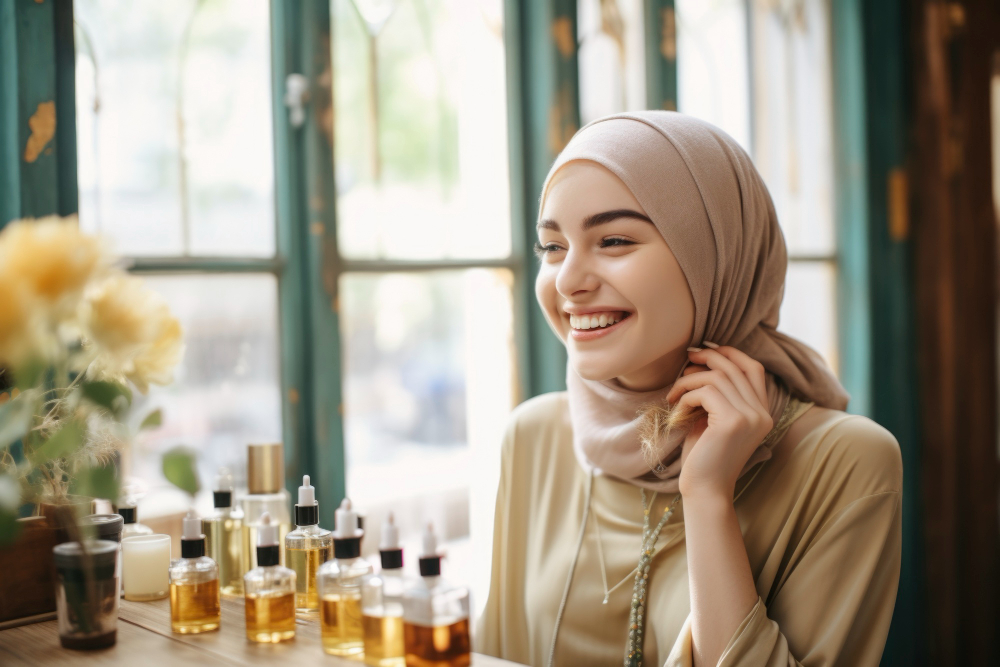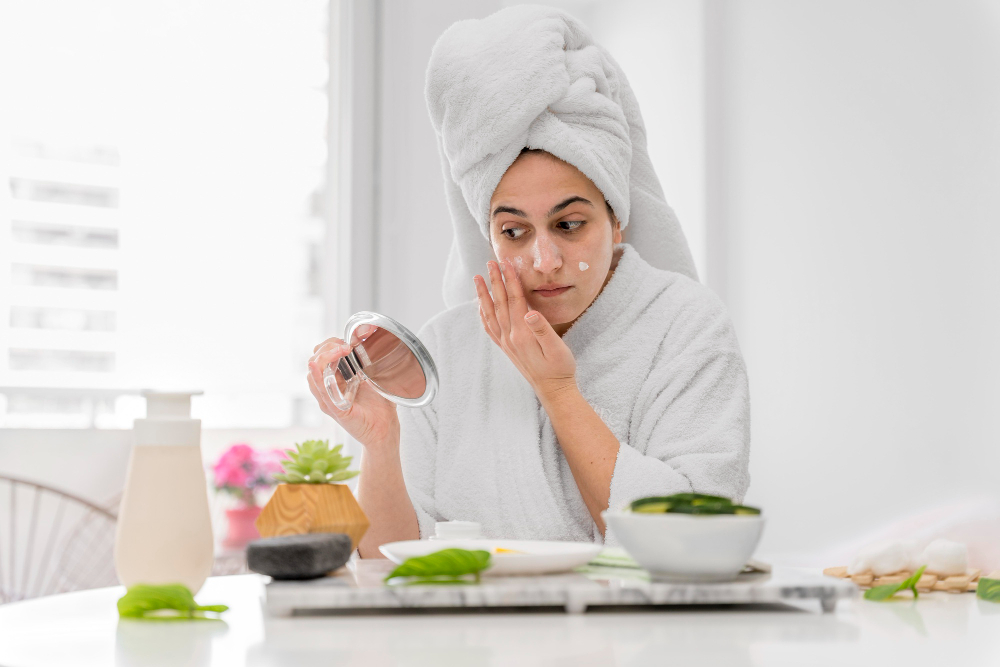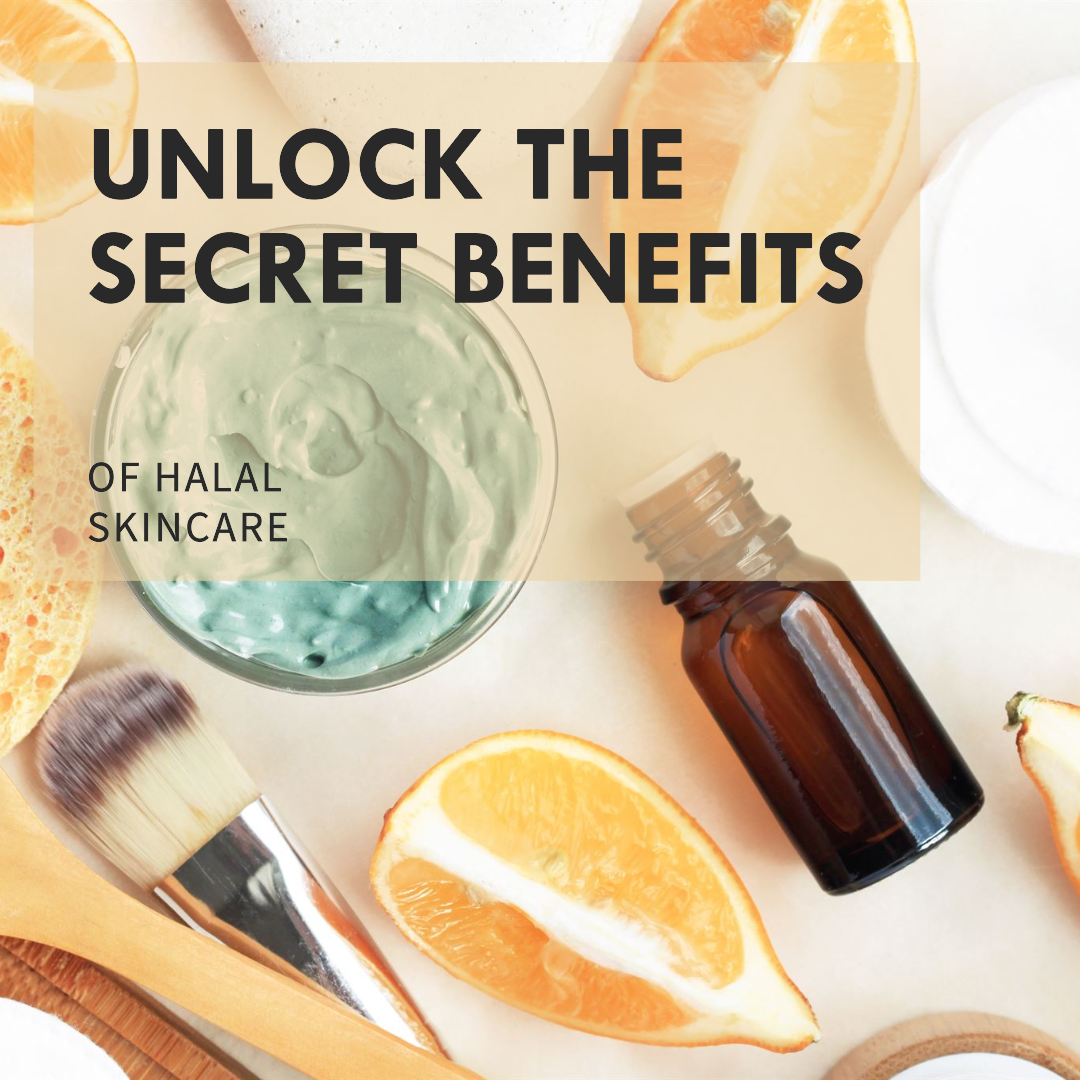The beauty industry is constantly evolving, with new trends and products emerging regularly. One of the most significant movements in recent years is the rise of Halal skincare. Halal skincare products, which adhere to Islamic principles, offer numerous benefits and promote ethical practices. This article explores the secret benefits of Halal skincare and provides best practices for incorporating these products into your beauty routine.
What is Halal Skincare?
Halal skincare refers to beauty products that comply with Islamic law. This means they are free from haram (prohibited) ingredients, such as alcohol and animal-derived substances, unless the animals were slaughtered according to Halal guidelines. Additionally, these products are produced ethically, ensuring no exploitation or harm to animals or humans.
Benefits of Halal Skincare

Ethical and Cruelty-Free
Halal skincare products are inherently ethical. They adhere to the Islamic principle of kindness and compassion towards all living beings, which means no animal testing is involved in their development. For those who value cruelty-free beauty products, Halal skincare is a perfect match, ensuring no harm comes to animals at any stage of production.
Example: Brands like Amara Halal Cosmetics and Inika Organic have built their reputations on ethical practices, providing consumers with cruelty-free beauty solutions that do not compromise on quality or efficacy. Amara Halal Cosmetics uses ingredients like organic argan oil and natural plant extracts, avoiding any harmful chemicals or animal testing.
Tip: When shopping for skincare products, look for cruelty-free certifications and check if the brand highlights its ethical sourcing and production methods. Certifications from organizations like PETA and Leaping Bunny can assure you that the products are truly cruelty-free.
Natural and Pure Ingredients
Halal skincare products prioritize natural and pure ingredients, steering clear of harmful chemicals and synthetic additives. This approach reduces the risk of skin irritation and allergic reactions, making these products suitable for all skin types, including sensitive skin.
Example: The use of natural oils, such as argan oil and rosehip oil, in Halal skincare products offers nourishing and rejuvenating properties without the adverse effects often associated with synthetic ingredients. Argan oil, rich in vitamin E and fatty acids, helps to hydrate and soften the skin, while rosehip oil contains antioxidants and vitamins that support skin regeneration and reduce inflammation.
Tip: When selecting Halal skincare products, look for ingredients like aloe vera, chamomile, and green tea extract. These natural components are known for their soothing and healing properties, making them excellent choices for maintaining healthy skin. Aloe vera is particularly effective for its moisturizing and anti-inflammatory benefits, while chamomile is great for calming irritated skin.
Alcohol-Free Formulations
Unlike many conventional skincare products that use alcohol as a preservative or astringent, Halal skincare products are free from alcohol. Alcohol can be drying and irritating, especially for sensitive skin. Halal products use alternative natural preservatives that maintain product integrity without compromising skin health.
Example: Brands like Saaf Skincare offer alcohol-free toners and cleansers that effectively purify the skin without stripping its natural moisture barrier. Saaf Skincare’s organic clarifying cleanser uses witch hazel and rose water to cleanse and tone the skin gently, avoiding the harsh effects of alcohol-based products.
Tip: If you have sensitive or dry skin, opt for alcohol-free formulations to prevent irritation and maintain hydration. Look for labels that specifically state “alcohol-free” to ensure you’re choosing the right products. Alcohol-free toners and cleansers are particularly beneficial for maintaining the skin’s natural balance and preventing dryness.
Spiritual and Mental Well-Being
Using Halal skincare products can contribute to spiritual and mental well-being. Knowing that your skincare routine complies with your religious beliefs provides peace of mind and a sense of fulfillment. This holistic approach to beauty enhances overall well-being, integrating spiritual and physical health.
Example: The practice of using Halal-certified oils for massage or aromatherapy can create a calming, spiritually enriching experience that supports mental health and relaxation. Essential oils like lavender and frankincense not only benefit the skin but also have therapeutic properties that promote a sense of tranquility. Lavender oil is known for its calming effects and can help reduce stress and anxiety, while frankincense has been used for centuries for its spiritual and healing properties.
Tip: Incorporate Halal-certified essential oils into your nighttime routine to unwind and prepare for restful sleep. Diffusing these oils or adding a few drops to your bath can enhance relaxation and improve sleep quality. A nightly ritual involving Halal-certified oils can provide a moment of mindfulness and spiritual connection.
Transparency and Trust
Halal skincare brands are committed to transparency, providing clear labeling and detailed ingredient lists. This allows consumers to make informed choices, building trust and loyalty. For Muslims and ethical consumers alike, this transparency is crucial in ensuring the products they use align with their values.
Example: Websites like Halal Beauty Box offer comprehensive ingredient breakdowns and certifications for each product, ensuring consumers know exactly what they are applying to their skin. These platforms provide detailed information about the sourcing and production of each product, promoting informed decision-making. Halal Beauty Box, for example, highlights the Halal certification and ethical practices behind each product, making it easier for consumers to trust the brands they choose.
Tip: Always read the labels and research the certifications of Halal skincare products. Familiarize yourself with the common Halal certification symbols and choose products from brands that prioritize transparency. This practice not only ensures you are adhering to your values but also helps you avoid harmful or questionable ingredients.
Best Practices for Using Halal Skincare Products

Read Labels Carefully
Always check the ingredient list and Halal certification on skincare products. Look for recognizable Halal certification symbols to ensure the products meet Islamic guidelines. Familiarize yourself with common haram ingredients to avoid.
Tip: Use apps like “Scan Halal” to quickly verify the Halal status of ingredients in beauty products. This app can scan barcodes and provide instant information about the product’s compliance with Halal standards, making it easier to shop confidently.
Patch Test New Products
Before incorporating a new Halal skincare product into your routine, perform a patch test. Apply a small amount of the product to your wrist or behind your ear and wait 24 hours to check for any adverse reactions. This step is crucial for preventing allergic reactions or irritations.
Tip: Note any ingredient that causes a reaction and avoid it in future product choices. Keeping a skincare journal can help you track your skin’s response to different products and ingredients, allowing you to refine your routine over time.
Follow a Consistent Routine
Consistency is key to achieving the best results with Halal skincare products. Establish a daily skincare routine that includes cleansing, toning, moisturizing, and sun protection. Regular use of these products will enhance their benefits, promoting healthier, more radiant skin.
Tip: Incorporate weekly treatments like exfoliation and masks to maintain skin vitality and address specific concerns. Using a gentle exfoliant once or twice a week can help remove dead skin cells and improve product absorption, while masks can provide targeted treatment for hydration, detoxification, or brightening.
Stay Hydrated and Eat Healthily
Complement your Halal skincare routine with a healthy lifestyle. Drink plenty of water and eat a balanced diet rich in fruits, vegetables, and whole grains. Proper hydration and nutrition support healthy, glowing skin.
Tip: Foods rich in antioxidants, such as berries and green leafy vegetables, help combat skin aging and improve skin health. Omega-3 fatty acids found in fish and flaxseeds can also enhance skin elasticity and hydration. Incorporating these nutrient-dense foods into your diet can provide the building blocks for healthy skin from within.
Store Products Properly
Store Halal skincare products in a cool, dry place away from direct sunlight. Proper storage ensures the longevity and effectiveness of the products. Follow the storage instructions provided by the manufacturer to maintain product efficacy.
Tip: Use a skincare fridge to keep products like serums and creams at an optimal temperature, enhancing their soothing effects. Storing your skincare products properly can also prevent the breakdown of active ingredients, ensuring they remain effective and potent over time.
Case Study: Transforming Skincare with Halal Products

Sara’s Journey
Sara, a 28-year-old Muslim woman, struggled with sensitive skin and frequent breakouts. After switching to Halal skincare products, she noticed significant improvements in her skin’s texture and clarity. The natural ingredients and alcohol-free formulations were gentle on her skin, reducing irritation and promoting a healthy complexion. Sara’s experience highlights the transformative power of Halal skincare.
Details: Sara started using a Halal skincare routine that included a gentle cleanser, a hydrating toner with rose water, a lightweight argan oil moisturizer, and a sunscreen free from harmful chemicals. Over six months, her skin’s health improved remarkably, with fewer breakouts and a more even tone. She also integrated weekly treatments like clay masks and exfoliating scrubs to maintain her skin’s vitality. Sara found that the consistent use of Halal products helped her achieve a balanced and radiant complexion, demonstrating the effectiveness of Halal skincare.
Conclusion of Halal Skincare Benefits
Halal skincare products offer numerous benefits, from ethical production to natural ingredients and spiritual well-being. By incorporating these products into your beauty routine, you can achieve healthy, radiant skin while staying true to your values. Embrace the secrets of Halal skincare and transform your beauty regimen today.
Halal Skincare Benefits FAQs
What makes skincare products Halal?
Halal skincare products are free from haram ingredients, such as alcohol and certain animal-derived substances. They are produced ethically and comply with Islamic principles, ensuring no harm to animals or humans during their creation. Halal products often carry certifications from recognized Halal authorities, providing assurance of their compliance with these standards.
Are Halal skincare products suitable for sensitive skin?
Yes, Halal skincare products often contain natural and gentle ingredients, making them suitable for all skin types, including sensitive skin. The absence of harsh chemicals and synthetic additives reduces the risk of irritation and allergic reactions. Many Halal skincare brands focus on using soothing and nourishing ingredients, such as aloe vera and chamomile, which are ideal for sensitive skin.
How can I ensure a skincare product is Halal?
Look for Halal certification symbols on the product packaging and check the ingredient list for any haram substances. Familiarize yourself with common Halal certification organizations and their symbols to ensure you're choosing compliant products. Additionally, researching the brand’s sourcing and production methods can provide further assurance of the product’s Halal status.
What are the benefits of using Halal skincare products?
Benefits include ethical production, cruelty-free practices, natural ingredients, alcohol-free formulations, and enhanced spiritual well-being. These products promote healthy skin while aligning with Islamic values and principles. Using Halal skincare also supports transparency and trust, as these brands are committed to providing clear and honest information about their products.
Can Halal skincare products improve spiritual well-being?
Using Halal skincare products can contribute to spiritual and mental well-being. Knowing that your beauty routine aligns with your religious beliefs provides peace of mind and a sense of fulfillment, integrating spiritual and physical health. This holistic approach to skincare enhances overall well-being, making your beauty routine a mindful and spiritually enriching experience.
How do I incorporate Halal skincare into my routine?
Start by replacing your current products with Halal-certified alternatives. Follow a consistent routine that includes cleansing, toning, moisturizing, and sun protection. Complement your skincare routine with a healthy lifestyle and proper hydration. Regular use of Halal products, along with weekly treatments like masks and exfoliation, can help maintain healthy and radiant skin.
Are there any common ingredients to avoid in Halal skincare?
Yes, common ingredients to avoid include alcohol, certain animal-derived substances (unless Halal-certified), and any synthetic additives that do not comply with Halal standards. Checking the ingredient list and certification symbols can help ensure that the products you choose are truly Halal. Familiarizing yourself with these ingredients can help you make informed choices and avoid products that do not align with Halal principles.
Further Reading…
- Your Ultimate Guide to Halal Fashion for All Seasons!
- Halal Cosmetics: Pioneering Sustainability and Natural Beauty
- Halal Cosmetics: Understanding Ethical Beauty
- Halal Cosmetics: A Deep Dive into Beauty and Faith
- Halal Skincare Standards
- Benefits of Natural Ingredients
- Cruelty-Free Skincare
- Alcohol-Free Skincare
- Ethical Beauty Practices

